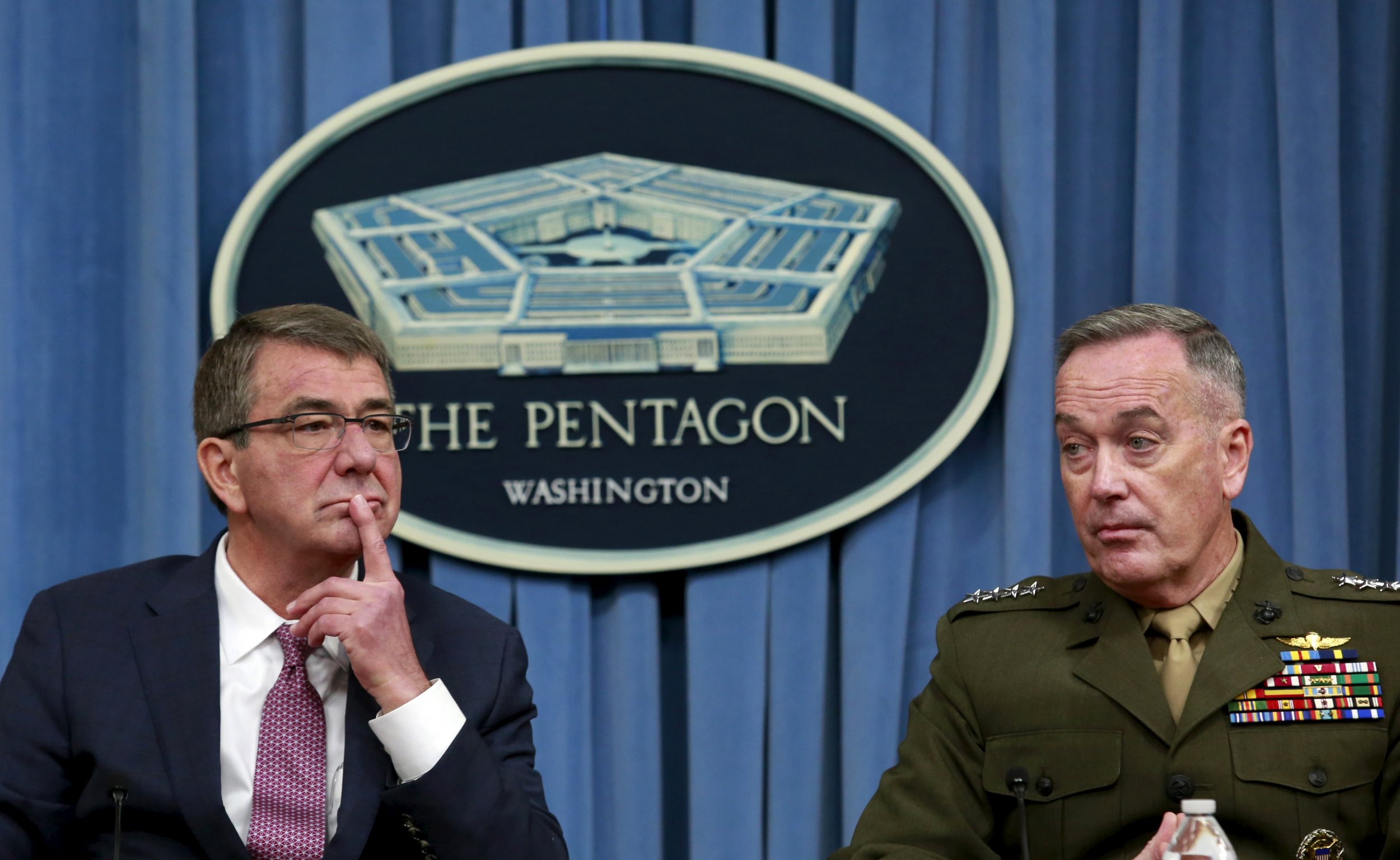
WASHINGTON (Reuters) - The United States is waging cyber attacks against Islamic State (ISIS) in Syria and Iraq, and its newly deployed commandos are also carrying out secret missions on the ground, Pentagon leaders said on Monday, in the latest signs of quietly expanding U.S. activity.
U.S. Defense Secretary Ash Carter said the cyber attacks, particularly in Syria, were designed to prevent Islamic State from commanding its forces, and Washington was looking to accelerate the cyber war against the Sunni militant group.
"The methods we're using are new. Some of them will be surprising," Carter told a Pentagon news conference.
General Joseph Dunford, chairman of the U.S. military's Joint Chiefs of Staff, said the cyber attacks were helping lay the groundwork for an eventual offensive operation to recapture the city of Mosul in Iraq from Islamic State.
Carter and Dunford, the Pentagon's top civilian and uniformed officials, both suggested the attacks were aimed at overloading the militants' networks. They declined to delve into specifics.
"We don't want the enemy to know when, where and how we're conducting cyber operations. We don't want them to have information that will allow them to adapt over time," Dunford said.
Dunford suggested Islamic State might not know why its computer networks were proving unreliable.
"They're going to experience some friction that's associated with us and some friction that's just associated with the normal course of events in dealing in the information age. And frankly, we don't want them to know the difference."
U.S. COMMANDOS
The United States disclosed in January that a new, roughly 200-strong U.S. continent of special operations forces was "in place" in Iraq, poised to carry out raids against Islamic State and other secret missions, both in Iraq and in Syria.
Carter disclosed on Monday that the so-called expeditionary targeting force, or ETF, was already operating on the ground.
"The ETF is in position, it is having an effect and operating, and I expect it to be a very effective part of our acceleration campaign," he said, without elaborating.
Its deployment represents increased U.S. military activity on the ground against Islamic State, exposing American forces to greater risk—something President Barack Obama has done only sparingly.
The force follows another deployment last year of up to 50 U.S. special operations troops in Syria to coordinate on the ground with U.S.-backed forces battling Islamic State.
The U.S. military disclosed last week that those U.S. forces helped opposition forces recapture the strategic Syrian town of al-Shadadi from Islamic State.
The Pentagon said recapturing the town helped sever links between Mosul in Iraq and Raqqa in Syria, the two major power centers in Islamic State's self-declared caliphate.
More knowledge about the group's operations is expected to be discovered, Carter said.
"As our partners take control of Shadadi, I believe we will learn a great deal more about ISIL's criminal networks, its criminal enterprise and what it does to sustain them," Carter said, using an acronym for the group.
Uncommon Knowledge
Newsweek is committed to challenging conventional wisdom and finding connections in the search for common ground.
Newsweek is committed to challenging conventional wisdom and finding connections in the search for common ground.
About the writer
To read how Newsweek uses AI as a newsroom tool, Click here.








